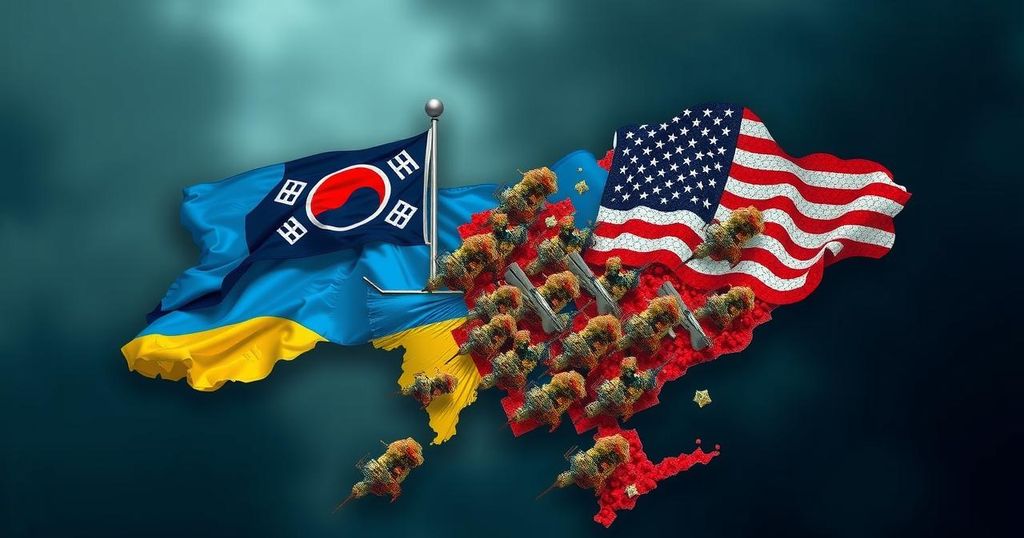Shifts in Ukrainian Conflict: North Korean Troops and Trump’s Election Impact

The Ukrainian crisis has been significantly affected by the arrival of North Korean troops supporting Russia and the election of Donald Trump, who has pledged to pursue a resolution to the conflict through a policy of “peace through strength.” This unprecedented military intervention marks a historical shift, leading to intensified U.S. military involvement and potential new diplomatic dynamics.
Recent developments have starkly altered the dynamics of the Ukrainian conflict, specifically highlighting the arrival of North Korean troops in Russia and the election of Donald Trump as President of the United States. The influx of at least 10,000 North Korean troops and corresponding weapons aid to Russian forces signifies unprecedented military involvement from East Asia in a European conflict, an event described as a “rupture” by President Emmanuel Macron. This participation has internationalized the conflict in a manner not seen since significant historical invasions and challenges the historical norm of Western intervention in Asia. In response to these developments, President Joe Biden has authorized Ukraine to target Russian positions using US-supplied ATACMS long-range missiles—a decision made in light of the escalated military involvement from North Korea. However, this action may not significantly alter the trajectory of the ongoing conflict, although it does implicate the United States more deeply, alongside European allies like the United Kingdom and France, who are providing similar military support. The election of Donald Trump presents a potential shift in diplomatic strategy toward the Ukrainian crisis, as he has pledged to seek a resolution through a policy of “peace through strength.” Ukrainian President Volodymyr Zelensky expresses optimism regarding Trump’s approach, indicating a desire for a more decisive engagement compared to the previous administration’s hesitations. Trump’s anticipated approach includes a combination of military support for Ukraine while keeping diplomatic channels open, potentially altering the conflict’s direction in the coming months. The juxtaposition of military escalation due to North Korean involvement and Trump’s emphasis on negotiation introduces both risk and opportunity, as all parties maneuver to assert their positions. Notably, Zelensky’s message to Trump emphasized the significance of his “peace through strength” strategy, reflecting a cautious optimism regarding a possible negotiated settlement that ensures Ukraine’s security and an end to hostilities. As the situation develops, the interaction between military engagement and diplomatic negotiation will be pivotal in shaping the future landscape of the conflict, potentially leading to a new dynamic characterized by a strategic balancing act between warfare and diplomacy.
The current Ukrainian crisis has resulted from prolonged hostilities that began in 2014, fundamentally impacting European security and involving multiple global powers. The recent addition of North Korean military personnel marks an unprecedented shift, with historical implications for military intervention. The introduction of Donald Trump into the diplomatic arena presents a possible change in approach, focusing on negotiation and military strength, and altering how both Ukraine and other nations might engage with the conflict moving forward.
The emergence of North Korean forces in support of Russia and Donald Trump’s election represent significant turning points in the Ukrainian conflict. These events not only complicate the war but also suggest a potential shift toward a new diplomatic strategy that balances military assistance with negotiation efforts. The evolving relationship between military action and diplomacy will hold substantial consequences for Ukraine’s future stability and the broader geopolitical landscape.
Original Source: www.lemonde.fr






